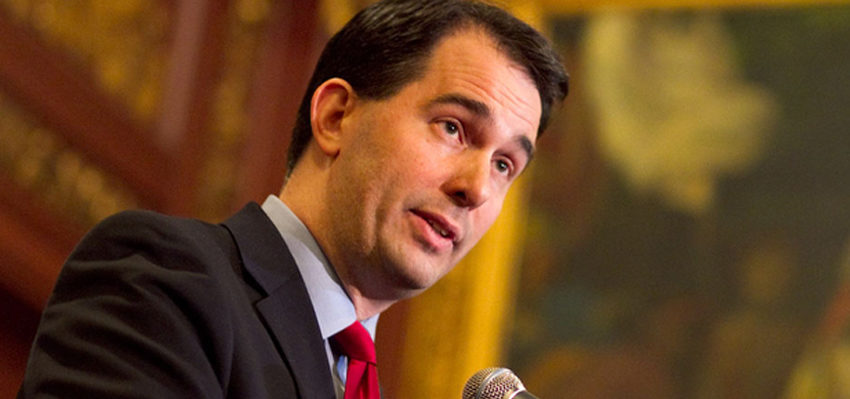
MacIver News Service | September 13, 2017
By M.D. Kittle
[Madison, Wis…] Gov. Scott Waker is rejecting an education plan by the state Department of Public Instruction because, according to the governor, the plan is bereft of accountability and bloated with bureaucracy.In a letter sent Wednesday to DPI Superintendent Tony Evers, Walker said he could not sign off on Evers’ proposal to the U.S. Department of Education. Each state is required to provide an education improvement plan under the federal Every Student Succeeds Act.
ESSA is billed as the more flexible replacement to the No Child Left Behind Act. It allows states more freedom in coming up with innovative policies to improve education outcomes.
“Your bureaucratic proposal does little to challenge the status quo for the benefit of Wisconsin’s students,” the governor wrote in his letter to Evers. “For example, under the law, a ‘rigorous intervention’ is required for low-performing schools. In your plan, schools may simply implement an improvement plan created under the supervision of the Department of Public Instruction.”
“I hope you will agree that adding layers of bureaucratic paperwork does little to help low-performing schools,” Walker added.
Walker notes other states are using their plans to “drive improvement through bold reforms.” He pointed to Tennessee’s proposal, already approved by the U.S. Department of Education. That plan, Walker wrote, supports “creative reforms, using innovations such as Achievement School Districts and Innovation Zones to support efforts to reform low-performing schools.”
Tennessee’s plan, which went into effect this school year brings “sweeping changes to transparency, accountability and school turnaround, and includes ranking schools A-F, changes how Tennessee reports on subgroups of students and boosts the recruitment an training of students,” according to a story last month in the Tennessean.
In May, DPI released its initial state plan for the implementation of the new federal education law. The state plan is the culmination of more than a year of work, including legislative briefings in the state Capitol and public hearings for stakeholders around the state. The document lays out new academic achievement goals and plans of action for Wisconsin’s students, including specific English language arts and mathematics proficiency goals.
The state aims to cut achievement gaps by half over the next six-year period, with a long-term goal of closing the gaps entirely by 2029. That translates to an average 1 percent annual increase in overall student proficiency for both English and math over six consecutive years.
MacIver’s latest State of Education Report details the myriad challenges and failings in Wisconsin’s K-12 education system.
Evers last month announced he is running for governor. While his position is supposedly nonpartisan, Evers is a liberal long backed by education unions and the public education establishment. He is seeking the Democratic Party nomination and, ultimately, a match-up with Walker, a two-term Republican who in 2012 survived a recall campaign driven by Evers’ union allies.
In his letter to Evers, Walker urges his would-be political challenger to think bolder and asks the DPI secretary to take another shot at the education success plan.
“On other issues, such as welfare and parental choice in education, our state is recognized as a national leader,” the governor wrote. “It is because we took action in the face of government special interests.
“We urge you to take this opportunity to make Wisconsin a reform leader yet again and resubmit a new proposal that allows our schools to innovate and students to succeed,” Walker closed.